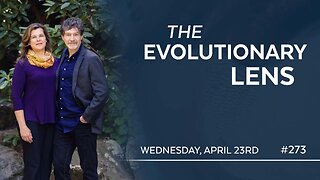Premium Only Content

Eucharist VII
XVI. Josef Jungmann German Theologian, Jesuit, avoided WWII in Austrian convent writing his tome, liturgical pioneer at Vatican II (1889-1975)
I came to his work without prior exposure and an open mind. A disappointment in terms of scholarship. I anticipated after the buildup of Hippolytus letters, i.e. Apostolic Traditions to have a good synopsis. Alas, no. I purposefully did not include the Apostolic Traditions because, like Dom Dix, I considered them unreliable as a source. After reading Jungmann, I still do even though he does not.
Jungmann’s text is heavy with the air of pre-Vatican II hope without the disastrous realities of the failures. The failures substantiate Dix’s thesis about liturgical change/chaos & societal fallout. His dismissal of the Apostle’s Creed formulation is, for me, arrogant and unsubstantiated. The presumption of proof lies with him how the apostolic age through the Middle Ages, with notable giants Augustine, Athanasius, Aquinas to name a very, very few got it wrong and how the ‘modern’ has it right.
I found this article , after my own independent research and agree with it. My of these presuppositions or themes of the Spirit of Vatican II overwhelm the research of the original sources. As Jungmann quotes Dix often read Dix if time is limited. If one must consult Jungmann, try the slim one volume work cited here before buying the two-volume massive tome written safely during WWII.
One paragraph, which I quote at length was worth the price and time of the slim book. He does an excellent summary of Dix’s 14 pages. A great Lenten practice is recalling the sacrifice of prior generations of Christians from which we benefit. Additionally, one of my proofs of why those who died horribly for the Faith in the first centuries have a presumption of knowledge concerning the times they lived in, including the composition of the Apostle’s Creed.
“Gregory Dix, the Anglican monk, in his book, The Shape of the Liturgy pages 141-155, esp 151 ff has a fine chapter on the pre-Nicene background of the liturgy. In this work he shows definitely with what firmness the early Christians held to their common worship, and this in spite of persecution. It was precisely their attendance at worship which constituted their great crime in the eyes of the pagan state. Anyone and everyone could believe what he pleased, but that the Christians should shun official state worship in favor of their own cult- that was the reason for the persecution. This hostile attitude towards special Christian gatherings was aggravated by the numerous and widespread calumnies of which these gatherings become the object: Christians held forbidden and secret meetings, where they had meals at which human flesh was eaten and infants’ blood was drunk. Nevertheless, the Christians held fast to their assemblies, even though they could have prayed at home and even though they received the Eucharist in their own dwellings. Every Sunday they went to celebrate the Eucharist in common, though this endangered their lives. Even at this early period, the Christians must have had the same thought that was expressed by the martyrs of Abitina during the Diocletian persecution: We cannot survive without the Eucharist: Sine Dominico (esse) non possumus. The Eucharistic celebration cannot be superseded: Intermitti Dominicum non potest.”
XVII Alcuin Reid
Thesis: From the very liturgical beginnings and through two thousand years of development, we came to receive our Mass and our Sacraments. Pope Benedict XVI, then Cardinal Ratzinger, began explaining and developing this in his book The Spirit of the Liturgy and later, step by little step, throughout his pontificate.
Ratzinger quote reminded me of Garden of Graces. Just as a gardener cares for a living plant as it develops, the rules it obeys, so the Church ought to give reverent care to the Liturgy through the ages, distinguishing actions that are helpful and healing from those that are violent and destructive.”
“The rite is something of benefit that is given to the Church, a living form of paradosis, the handing-on of Tradition.”
“In the words of Klaus Gamber, “in their origins, the forms of Christian worship, so far as its relation to Judaism is concerned, were nothing fundamentally new.” Echoes scholarship of Fr. Meagher discussed earlier.
-
 7:42
7:42
Fides et Ratio
1 year agoMicah Reading Proverbs 10
44 -
 LIVE
LIVE
Darkhorse Podcast
1 hour agoThe 273rd Evolutionary Lens with Bret Weinstein and Heather Heying
938 watching -
 LIVE
LIVE
RiftTV/Slightly Offensive
1 hour agoCHAOS in Trump Admin, Tesla Profits CRASH, Hegseth in TROUBLE? | The Rift Report
1,005 watching -
 LIVE
LIVE
Dr Disrespect
4 hours ago🔴LIVE - DR DISRESPECT - WARZONE - HOW TO WIN SOLO GAMES
2,704 watching -
 LIVE
LIVE
The HotSeat
1 hour agoAmerica: The Upside Down Is REAL!
636 watching -
 LIVE
LIVE
Film Threat
5 hours agoANDOR SEASON 2! ALL EPISODES REVIEWED! | Hollywood on the Rocks
73 watching -
 2:01:02
2:01:02
MG Show
5 hours agoMaking America Healthy Is Happening: Deep Dive
6.95K14 -
 21:23
21:23
SLS - Street League Skateboarding
12 days agoLuan Oliveira's Top SLS Moments: 2015
9.6K -
 12:16
12:16
Cowboy Kent Rollins
6 days ago $2.31 earnedFried Onion Burger | Famous Oklahoma Fried Onion Burger Recipe
30.5K8 -
 57:42
57:42
Crypto Power Hour
4 hours agoThe Wicked Witch Is Dead, New Leadership At The SEC |EP15
4.6K1